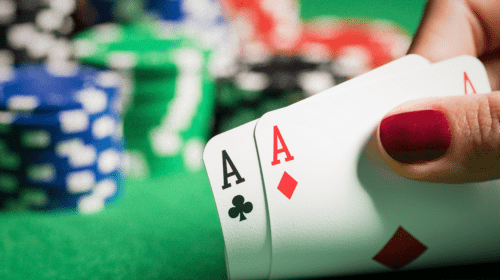Let’s begin with something important: Talking about male loneliness does not mean ignoring the struggles of others.
It’s not a call to defend patriarchy or sidestep the very real power imbalances that continue to hurt others.
But men are human beings, too—and right now, many are quietly suffering and don’t know how to say it.
We’re facing a mental health crisis among men that’s costing lives. Men are statistically more likely to die by suicide, more likely to develop substance use disorders, and more likely to go untreated for depression or anxiety. They’re also more prone to isolate, deny vulnerability, and keep quiet about their struggles. And that’s a public health problem worth talking about—with empathy and without shame.
The Friendship Gap
Sure, there are exceptions—guys with real, deep friendships. The kind where you can show up a mess, spill your guts, and still be “one of the bros”. But for a lot of men, that’s not the norm. Studies show that one in five men says they have no close friends. And in truth, that number may be higher—because even among friends, few feel comfortable being truly open. It’s not because men lack depth or emotional capacity. It’s because the way we’ve taught men to be men runs counter to what it takes to form meaningful connections.
From an early age, many men are taught to be strong, self-sufficient, unshakable. The message—spoken or not—is: Don’t feel too much. Don’t talk too much. Don’t need too much. But true friendship asks for the opposite. It’s built on mutual vulnerability. It begins not with wit or banter, but with honesty:
“I’m exhausted.”
“I hate the person I’ve become.”
“I’m scared.”
“Help me.”
The friendships that truly sustain us—the ones that protect against despair and addiction—aren’t forged in bravado. They’re built in the quiet moments where someone admits they’re not okay.
Isolation and Addiction: A Vicious Cycle
Addiction doesn’t begin in a vacuum. It often starts with pain, disconnection, or an overwhelming need for relief. And for many men, emotional isolation is a core driver. When you have no one to talk to, or no safe place to fall apart, substances can start to feel like the only coping tool. They become a stand-in for comfort, calm, or courage. But the same traits that isolate men emotionally—stoicism, independence, self-denial—also make it harder to ask for help when addiction takes hold.
We’re Losing Social Capital
Compounding this problem, the world is lonelier than ever. Social capital—the relationships, networks, and trust that connect us—is eroding. Community spaces have shrunk. Friendships are harder to maintain. Many men lose connection after leaving school, ending a relationship, becoming a parent, or retiring.
Women are typically granted more social permission to connect through vulnerability, as it’s woven into the feminine identity that society expects them to personify (this creates its own issues for women, but we’ll save that for next week). For men, that kind of emotional openness is rarely taught, welcomed, or modeled, leaving them without the framework needed to develop connection.
While society is beginning to reckon with mental health and question traditional roles, many men are still left without space to do the same. Far too often, men try to reach out only to be told his struggles don’t matter because, as a man, he exists at the apex of a society that he alone created and, thus, has nothing to complain about.
So men stop reaching out.
They suffer in silence.
And the silence grows heavy.
When It Feels Like You’re Falling Behind
Mental health cannot be separated from the context around it. It’s shaped by social, economic, and cultural forces, and right now the pressure to have it all together is everywhere. We live in a time where the cost of living is skyrocketing, job markets are unstable, and traditional paths to independence—moving out, owning a home, building wealth—feel increasingly out of reach. And for many men, these economic realities aren’t just stressful—they cut deep into identity.
Cultural narratives still push the idea that a man’s worth is tied to what he can provide: a steady income, financial independence, romantic desirability, and emotional control. From movies to social media, the message is subtle but constant: a “real man” should be successful, secure, unbothered, and climbing.
Always.
Climbing.
So when real life doesn’t match that image and you’re still living at home, still struggling to make ends meet, still trying to figure things out, it can feel like you’re not just falling behind financially, but personally. The shame can creep in quietly: I should have more to show for myself. I should be stronger than this. I shouldn’t need help.
But here’s the truth: no one has their shit together.
The idea that you’re somehow failing because life is hard and the systems are broken? That’s the illusion. You are not the problem. The expectation is. You’re not less of a man for struggling. You’re not pathetic for needing help. You’re not alone in carrying these quiet pressures.
The only Zen found at the top of the mountain is the Zen you bring with you.
Your sense of peace won’t be determined by how much money you make or how many boxes you’ve checked—it’s shaped by the things you hold within yourself. And if you’re holding a lot of shame, fear, grief, or anger? You deserve to be able to put it down. You’re human.
It’s Not Too Late to Embrace Connection
The good news? You don’t have to stay barricaded in. Vulnerability can be learned and practiced—awkwardly at first, then with growing strength. For many men, the idea of emotional closeness might feel unfamiliar, even uncomfortable. But that discomfort isn’t a sign you’re incapable of connection—it just hasn’t been part of your daily life. Yet. You don’t need to make grand gestures or dramatic confessions. Relearning connection can start small:
- Picking up the phone instead of sending a text.
- Saying “I’ve had a rough day” instead of “I’m fine.”
- Letting yourself be honest about something that hurt you.
- Not saying “LFG!!!!” in professional email correspondence anymore (I made that one up but like, maybe consider it.)
Over time, those small moments build trust. And trust builds friendship. And friendship—real, mutual, grounded friendship—is one of the strongest protectors we have against addiction, depression, and loneliness.
If you’ve spent years avoiding intimacy or emotional openness, it’s okay. That was survival mode. You did what you knew. But now there’s space for something different, something more whole. You don’t have to share everything all at once. You don’t have to be perfect. You just have to be willing. Willing to try, and to keep trying, even if it feels awkward at first.
And if you’re not sure where to start, that’s okay too. That’s what recovery—and community—is here for.
You Weren’t Meant to Do This Alone
There’s nothing soft or weak about needing other people. Human beings were built for connection. It’s not dependency—it’s biology. It’s how we regulate stress, make meaning, and heal. It’s a tragedy that so many men spend their lives defending a version of themselves they never asked to be. That they can write poetry, raise children, lead teams, survive trauma, and still feel like a failure for feeling too much. But you don’t have to stay stuck in that pattern. Whether you’re struggling with depression, anxiety, substance use, or just a sense that something’s missing, connection is part of the way forward.
Recovery Unplugged understands that recovery isn’t just about quitting a substance. It’s about healing, rebuilding, and rediscovering yourself. You’re not a loser. You’re just carrying a lot, and there’s support for that. Reach out today. We’re ready when you are.

























